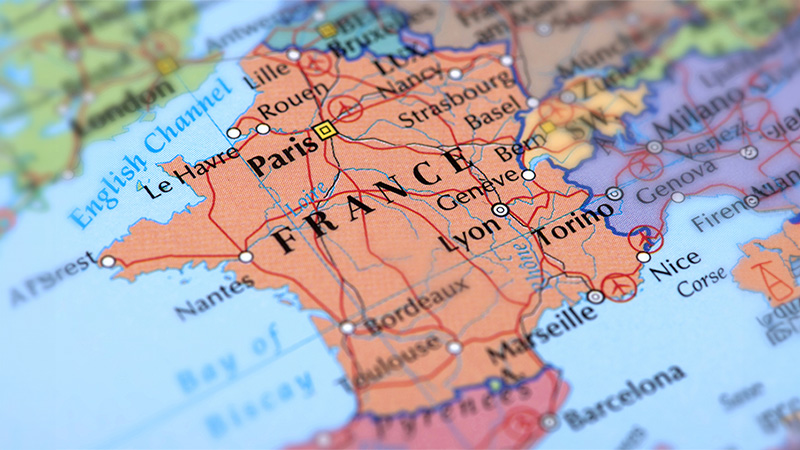French 10-year yields eclipsed Italy for the first time since 1998, following the latest round of French political upheaval which saw prime minister Francois Bayrou lose a vote of confidence in his government.
Yesterday’s defeat leaves France searching for a fifth prime minister in under two years. Bayrou had called the vote to end a stand-off over his 2026 budget, in which he aimed to tackle the country’s debt, which sits in the region of its €3.4trn (£2.9trn).
He had proposed abolishing two national holidays and freezing welfare payments and pensions in the budget for the next year, which was anticipated to save €44bn.
“Markets saw this result coming two weeks ago, hours after the ill-fated Monsieur Bayrou announced it,” said Chris Beauchamp, chief market analyst at IG.
“The lack of reaction suggests that investors expect history to repeat itself, as the embattled president Macron seeks another person for the job.
“While he’s likely to get there in the end, it will be a harder sell to the French public, while markets continue to let the story play out, knowing that the debt trajectory remains fundamentally unsustainable.”
See also: Dynamic Planner’s Chatterjee: Investing on shifting sands
Bond yields creep up
Following the result, French 10-year government bond yields rose above Italian borrowing costs for the first time since the late 1990s.
However, yields are still below last week’s government bond market turmoil, when the 10-year stood at 3.59%, though yields are much higher than the 2.9% this time last year.
“France is starting to look like Italy in the bad old days – drowning in debt and with a revolving door on the Prime Minister’s palace,” said Samuel Fuller, director at Financial Markets Online.
“Yields on French bonds are creeping up as institutional investors fret that the country is inching towards a doom loop, and there’s every chance the Fitch ratings agency could downgrade France’s credit rating as soon as this Friday.
“The reason isn’t so much the fall of another Prime Minister, it’s more the lack of options President Macron has to fix the mess.
“Whoever he chooses to succeed the ill-fated Mr Bayrou, they are likely to be paralysed by a Parliament polarised into hard left and far right. The chances of French MPs approving a Budget by next month’s deadline look vanishingly slim.”
With anti-austerity protests planned in Paris, Fuller said more market volatility is expected.
“For now French stocks are firmly in relief rally territory, but the calm will be temporary. Significant volatility looms and this week will be as bumpy for international investors as it is for French themselves.”
PA event: Autumn Congress
Interest rate decision
The result comes ahead of the ECB’s monetary policy meeting on Thursday, at which analysts expect interest rates to hold steady at 2%.
However, the fresh political crisis in France could have consequences for the wider continent, according to Berenberg chief economist Holger Schmieding.
“The policy paralysis in Paris spells trouble for France and Europe. It makes it even more difficult for Europe to stand up to Trump and Putin. Even more so than before, the onus is now on Germany to take the lead to defend European interests. President Emmanuel Macron can still set foreign policy for France. But he does not control the purse strings and would struggle to get any international agreement ratified by parliament.
He added that following the fall of Bayrou, ratings downgrades for French bonds seem possible.
“They would not come as a major surprise, though. A genuine financial crisis with a self-reinforcing doom loop – higher yields equal bigger deficits, which equal even higher yields – remains quite unlikely for the time being. With its almost balanced current account, France is no obvious candidate for a financial crisis.
“Of course, we cannot rule it out completely. If the French Socialists, who hold the balance of power in a deeply divided parliament, continue to reject common sense and insist on unfinanceable demands, the risk could rise.
“ECB president Lagarde will have to mince her words carefully this Thursday, neither suggesting that the ECB may eventually bail out an unrepentant fiscal sinner nor taking such a harsh line as to unsettle markets that still give France the benefit of the doubt.”
